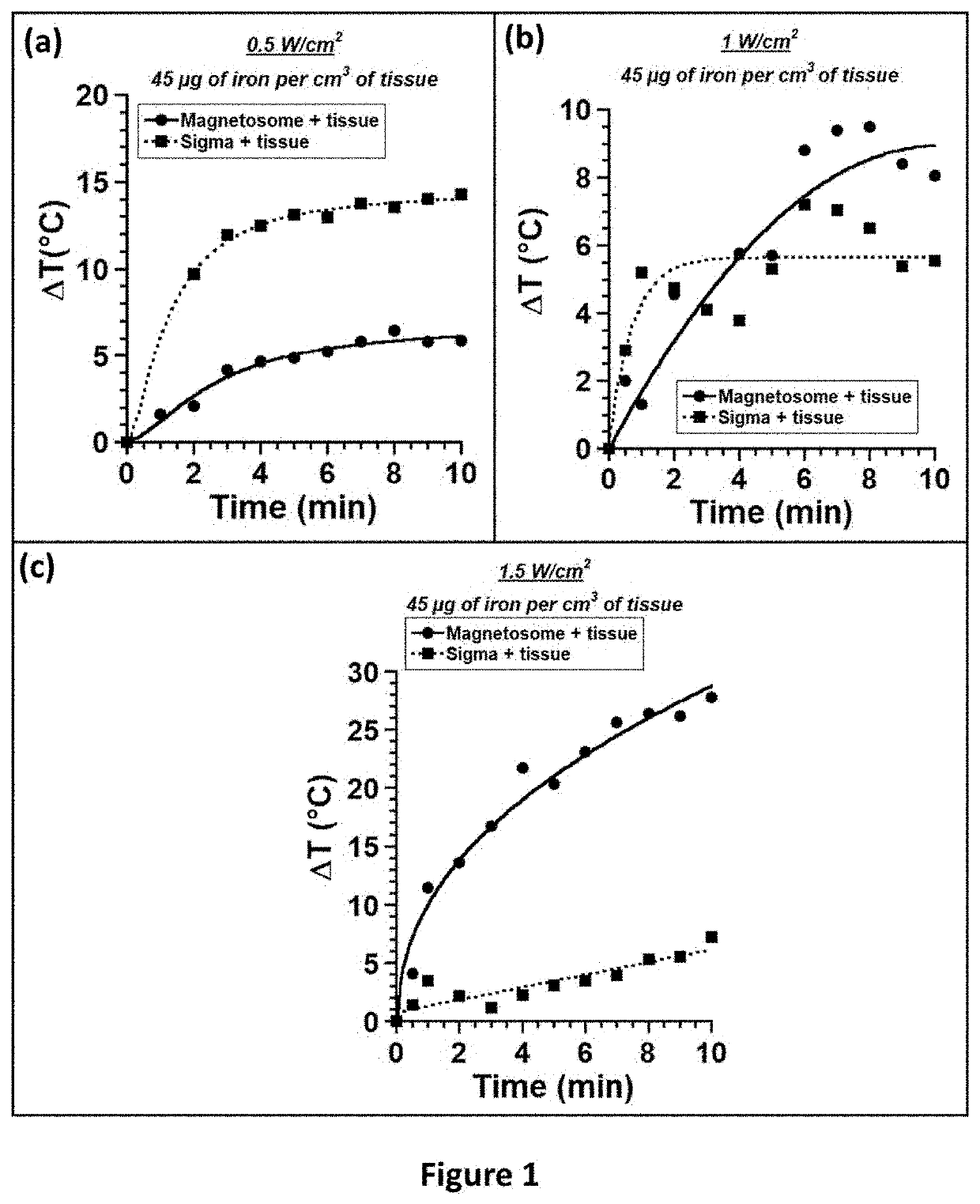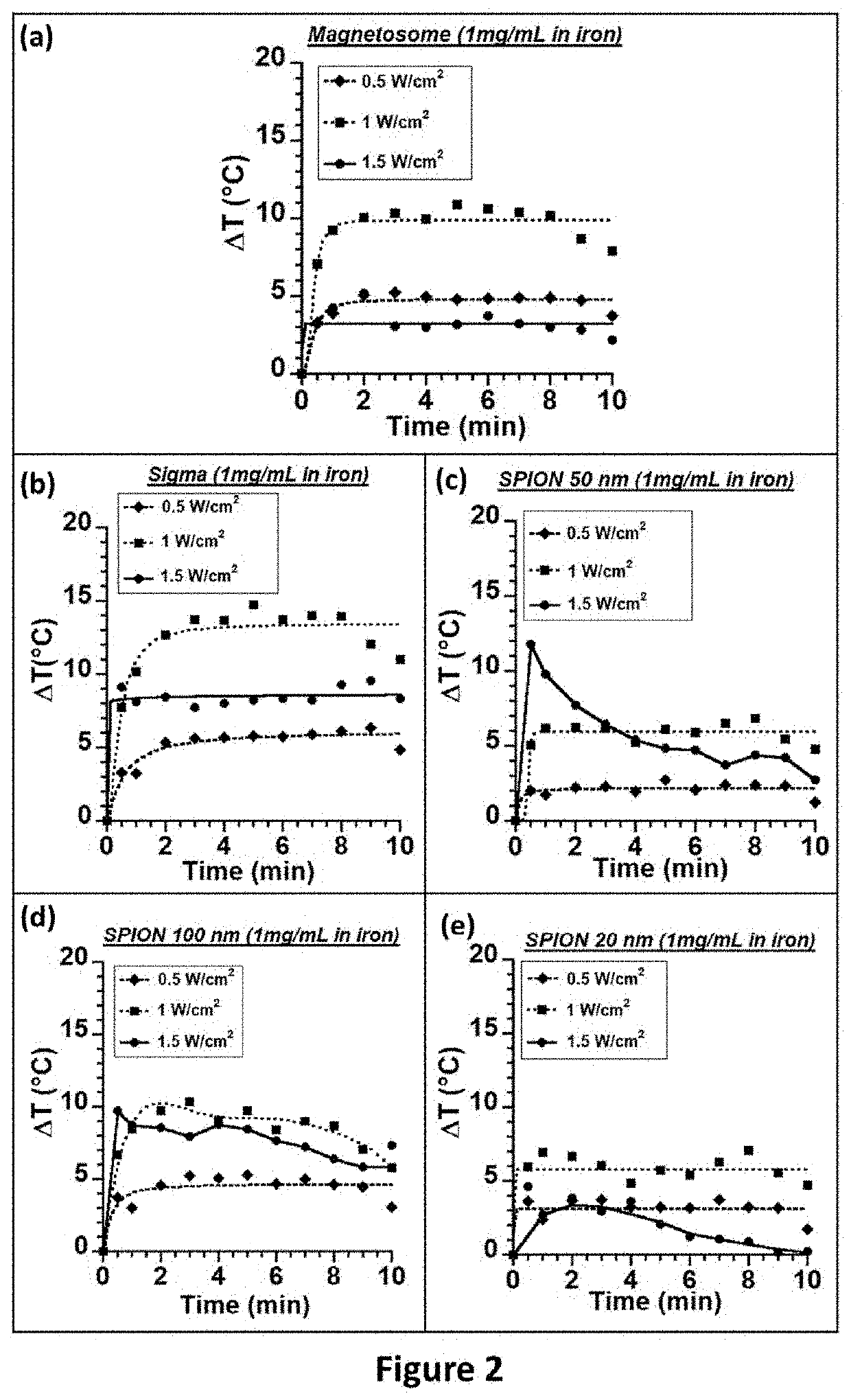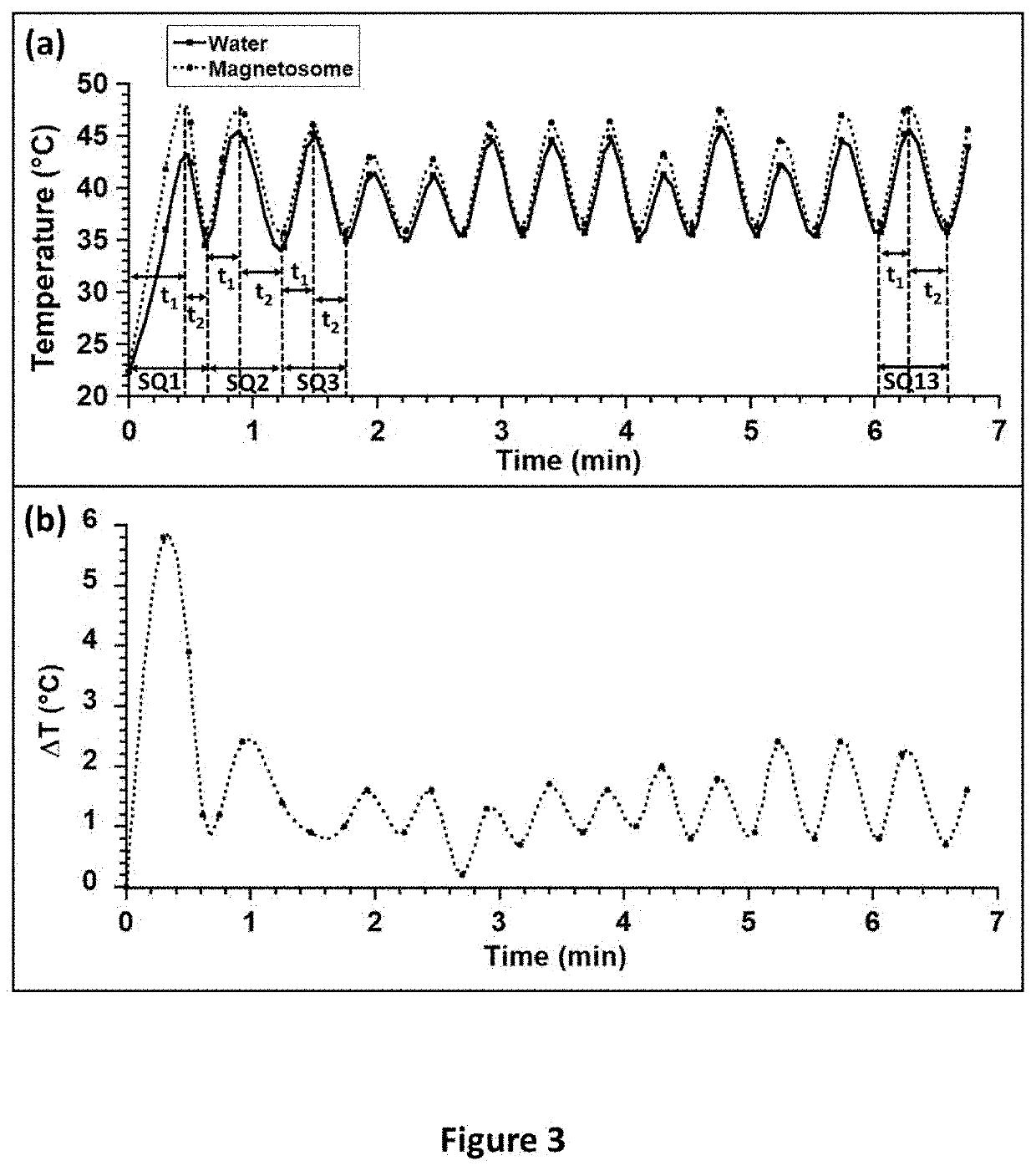Nanoparticles sequentially exposed to low intensity acoustic waves for medical or cosmetic applications
a technology of low-intensity acoustic waves and nanoparticles, which is applied in the direction of drug compositions, analysis of solids using sonic/ultrasonic/infrasonic waves, and therapy
- Summary
- Abstract
- Description
- Claims
- Application Information
AI Technical Summary
Benefits of technology
Problems solved by technology
Method used
Image
Examples
example 1
[0670]Materials and Methods:
[0671]Nanoparticles:
[0672]We used magnetosomes extracted from magnetotactic bacteria and further purified to remove most organic material from magnetotactic bacteria, which were composed of: i) a core or mineral of maghemite with a percentage in mass of organic material originating from magnetotactic bacteria of 0.3%, and ii) a coating made of carboxy-methyl-dextran surrounding the core. Magnetosomes formed chains and were prepared using an adapted and improved protocol described in patent PCT / FR2016 / 000095 (Pub. Number WO2016 / 203121A1) incorporated in reference (example 8). These magnetosomes are designated as M-CMD. We also used i) nanoparticles composed of iron oxide of sizes 35±13 nm purchased from Sigma designated as Sigma nanoparticles (Ref: 637106-25G, Lot #MKBK2270V), ii) superparamagnetic nanoparticles composed of iron oxide of 20 nm purchased from Micromod designated as SPION20 (Nanomag®-D-spio 20, Ref: 79-02-201), iii) superparamagnetic nanopar...
example 2
[0698]FIG. 4 shows that when 100 μl of a suspension of BNF-Starch nanoparticles mixed in water are exposed to an alternating magnetic field of average strength 30 mT and frequency 196 kHz during 30 minutes, the SAR increases from 4 Watt per gram of iron comprised in nanoparticles for a concentration of 500 μg of iron comprised in nanoparticles per mL up to 114 Watt per gram of iron comprised in nanoparticles for a concentration of 5 mg of iron comprised in nanoparticles per mL. The SAR increases by factor of 29 for an increase in nanoparticle concentration by a factor of 10. Above 5 mg / mL, the SAR saturates at 110 Watt per gram of iron comprised in nanoparticles.
example 3
TOXICITY AND TEMPERATURE MEASUREMENT OF CELLS BROUGHT INTO CONTACT WITH DIFFERENT CONCENTRATIONS OF MAGNETOSOMES AND SUBJECTED (OR NOT) TO THE SEQUENTIAL OR CONTINUOUS APPLICATION OF ULTRASOUNDS
[0699]Materials and Methods:
[0700]The magnetosomes used in its example are M-CMD. U87-MG glioblastoma cells were purchased from ATCC (ATCC® HTB-14) and cultivated in High-Glucose Dulbecco's Modified Eagle's Medium (DMEM), supplemented with 1 mM pyruvate, 10% fetal calf serum, 100 units / mL of penicillin and 100 μg / mL of streptomycin. The cells were seeded in a T175 flask with culture medium. When 80-90% confluence was reached, the supernatant was removed and replaced with PBS to rinse the cells. Subsequently, the PBS solution was removed and replaced with a volume of 5 mL of 0.25% trypsin-EDTA. The cells were incubated for 5 minutes at 37° C. with 5% carbon dioxide in an incubator with a humidity of 90-95%. The cells were then harvested. A volume of 10 ml of culture medium was added to deactiv...
PUM
 Login to View More
Login to View More Abstract
Description
Claims
Application Information
 Login to View More
Login to View More - Generate Ideas
- Intellectual Property
- Life Sciences
- Materials
- Tech Scout
- Unparalleled Data Quality
- Higher Quality Content
- 60% Fewer Hallucinations
Browse by: Latest US Patents, China's latest patents, Technical Efficacy Thesaurus, Application Domain, Technology Topic, Popular Technical Reports.
© 2025 PatSnap. All rights reserved.Legal|Privacy policy|Modern Slavery Act Transparency Statement|Sitemap|About US| Contact US: help@patsnap.com



